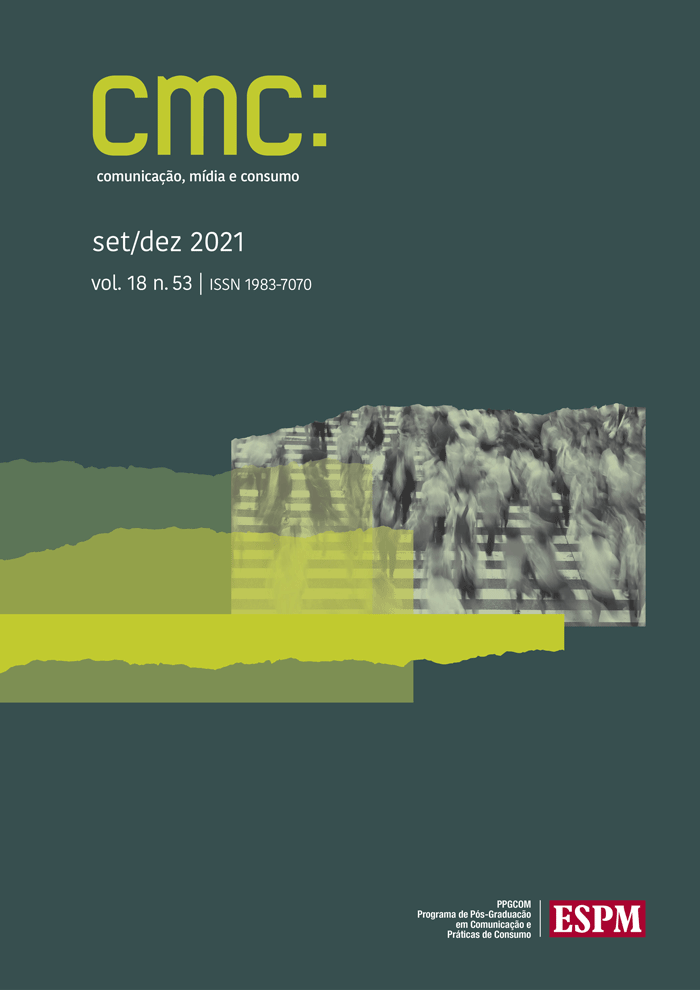Transnationalization strategies of original content from non-linear televisions from Latin America: the case of Assédio, by Globoplay
DOI:
https://doi.org/10.18568/cmc.v18i53.2469Abstract
We examined transnationalization and communicability strategies in Assédio, original Globoplay series, based on a methodology that combines televisuality analysis with the hermeneutics of the narrative. We take Globoplay as an agent in the process of transnationalization, which is still incipient, despite adopting elements of a grammar of transnationalism. With the case study of Assédio, we observed a complexification of the narrative, the use of linear time with different functions and stylistic composition designed to figure sexual violence against women. These factors demonstrate that the series adopts principles of a local-global appeal capable of affecting both expanded audiences to other locations and maintaining links with the place of origin and its familiar national audience.Downloads
Download data is not yet available.
Downloads
Published
2021-12-20
How to Cite
Rocha, S. M., & Meigre, M. V. (2021). Transnationalization strategies of original content from non-linear televisions from Latin America: the case of Assédio, by Globoplay. Comunicação Mídia E Consumo, 18(53). https://doi.org/10.18568/cmc.v18i53.2469
Issue
Section
Artigos
License
Authors retain the copyright and grant the journal the right to first publication, with the work simultaneously licensed under the Creative Commons Attribution License that allows the work sharing with acknowledgment of authorship and initial publication in this magazine.








